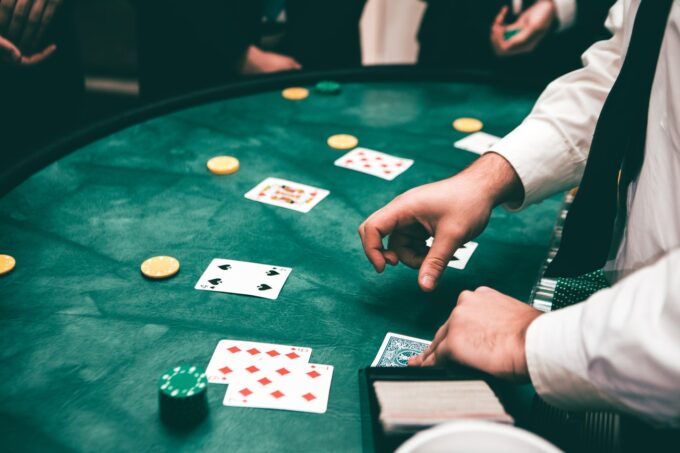Gambling lends itself very well to feeding people’s superstitions. Human nature is such that it seeks to establish a logical connection even in the face of seemingly inconsistent or random events. That’s how the need arises to calculate and predict the outcome of a game of chance. Even if you play at a reputable casino like Casumo NZ online casino with controlled equity, you must be careful.
The tendency to calculate a random event in advance is one of the factors responsible for problematic gambling behavior. This is because logical connections are made that lead to errors in judgment. This phenomenon is also systematically used by gambling providers to suggest winning.
From land-based casinos in Las Vegas to online gambling on the internet, gambling has been a daily pastime for millions of people for decades, even centuries in its most primitive form. Throughout the ages this has provided fertile ground for countless popular myths to not only take root, but to flourish in the minds of the average gambler. In the long run, gambling myths cost players money. People often have risky beliefs or myths about gambling that can lead to losing money.
Here are some myths to ignore when you’re gambling
1. Myth: A series of losses is followed by an increase in the probability of winning. Therefore, it is essential to “continue playing” after suffering losses.
Reality: It’s Mainly the attempt to compensate for dangerous losses! Neither a loss nor a win predicts future outcomes.

Source: unsplash.com
2. Myth: A machine is “hot” if it has not produced a win for a long time. Thus, “the player” imagines that the machine will inevitably pay out a big win soon.
Reality: If a machine has not paid out a profit for a long time, it does not mean that you should expect a profit soon or that you should increase your bet to “line your pockets”!
3. Myth: You must “gamble” every day to become addicted to gambling!
Reality: The frequency of gambling can indeed be an indicator of problem gambling. But the importance of gambling to solve everyday problems can also turn occasional gambling into problem gambling. The decisive factor is whether gambling remains a pleasure without negative consequences or whether it causes financial, psychological, or social harm.
4. Myth: If “black” appears several times in a row in a roulette game, the chance of getting “RED” is greater than the chance of getting “black” in the next game.
Reality: The probability of getting a number and/or the correct color on the roulette wheel is the same for each game’s outcome – regardless of the result of the previous games.
5. Myth: Gambling isn’t addictive. People who are addicted to gambling already have issues.
Reality: Basically, anyone can have problems related to gambling. Certain characteristics of an individual can increase the likelihood of moving on to problem gambling. The presence of a mental disorder may be a risk factor, but it does not necessarily lead to gambling addiction.

Source: mmhsc.org.uk
6. Myth: If I keep playing, my luck will change, and I’ll get back the money I lost.
Reality: Every time you bet, the outcome is entirely independent of the previous round, so your chances are no better on your first bet than on your tenth. In the long run, the more you risk, the more you lose.
7. Myth: If I see a particular card value coming up more often in a poker game, I should bet on it because there’s a good chance that card will be dealt again very soon.
Reality: A 52-card deck can create 2.6 million possible deals. Since each deal is entirely independent of the previous one, the odds of a particular card being dealt soon are no more significant than any other card. The chances that this card will be dealt again are no greater or less than the first time it was dealt.
8. Myth: I feel like it’s my lucky day. I know I’ll Win.
Reality: Hoping, wishing, thinking, or needing to win money doesn’t influence the outcome of a game of chance.
9. Myth: Knowing the rules of a game (like poker, for example) increases your chances of winning.
Reality: Knowing the rules of a game can make you a better player, but the chances of losing are always greater than winning. Besides, you have no control over the distribution of the cards.

Source: pexels.com
10. Myth: A lucky person in life will be fortunate at gambling.
Reality: No object or other lucky charm can improve the chances of winning. Most people who participate in gambling believe that they are fortunate, but in the end, they lose.
11. Myth: Knowing the teams or stats of players or teams ensures winning sports events.
Reality: Many events can happen during a game. For example, a player may receive a red card, which could cause significant changes in the game’s outcome.
12. Myth: Recording past results can predict future results
Reality: The nature of gambling is that each event is unique and independent. For example, in a dice game, each roll is a separate event and does not influence the outcome of future rolls.
13. Myth: Following a good betting expert is the surest way to win
Reality: Professional tipsters are not better or smarter than you. Their only advantage is that they can afford to spend more time picking games since it’s their day job.

Source: sportplazza.com
14. Myth: It’s easier to win with a big bankroll
Reality: Making a profit with a large bankroll is just as tricky as gambling with a small bankroll. If you’re a big player, the risk is much greater, as a lost bet can have a severe impact on the money you need to cover your daily needs.
15. Myth: Bookmakers know better.
Reality: Bookmakers are human, and like the rest of us, they also make mistakes and false estimations. Sometimes , they overlook critical details.
Conclusion
As you may have noticed, there are many myths about gambling. The most important thing to remember is to be careful with your actions and play within pre-set limits to avoid getting caught up in beliefs and other dangerous myths.







